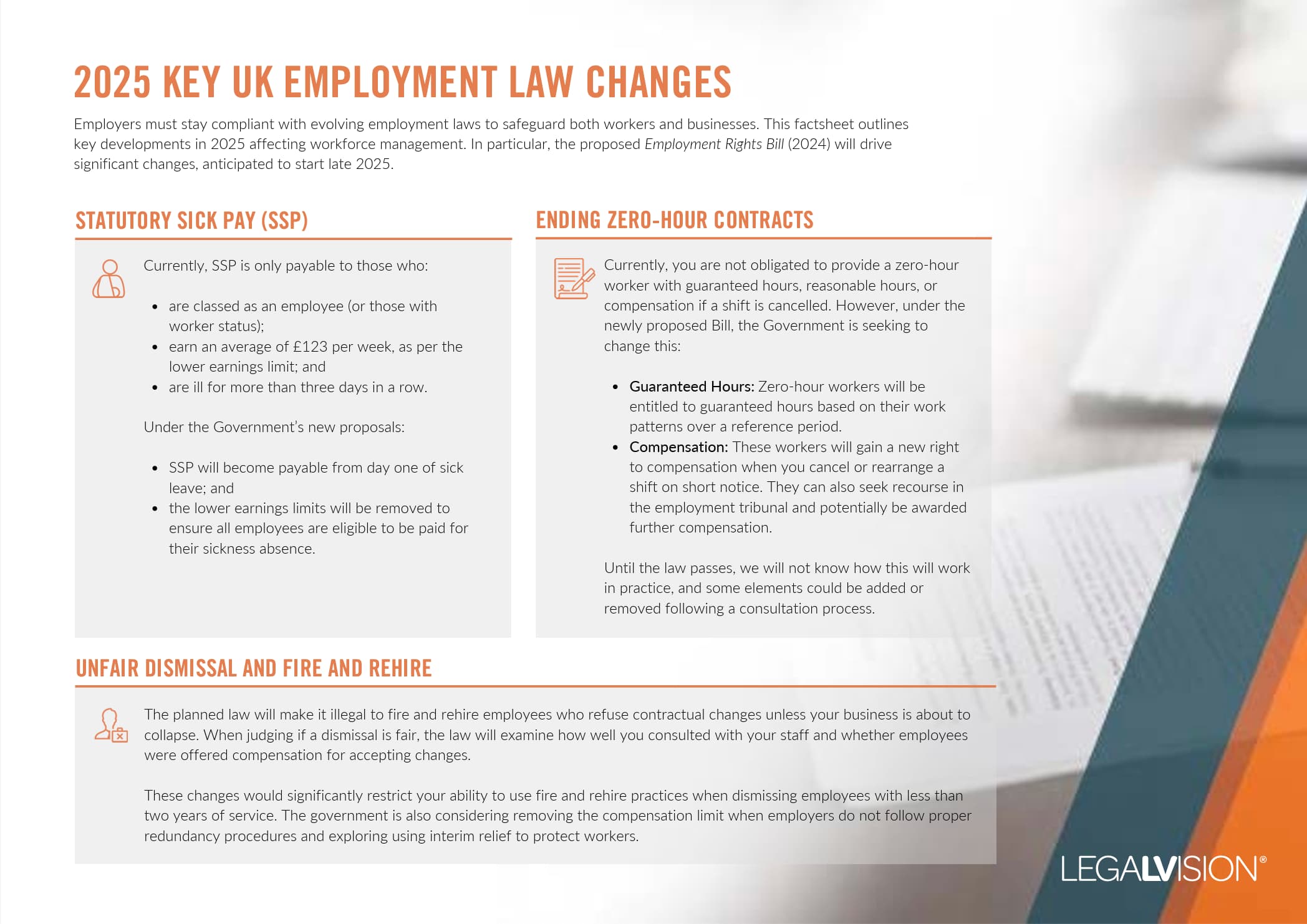As an employer, you may face tough decisions about your workforce during periods of economic uncertainty or shifting business needs. When circumstances necessitate a temporary reduction in staff or working hours, temporary layoffs or short-time working can provide a way to retain valued employees while addressing immediate financial pressures, avoiding the need for redundancies. This article will explain the concepts of temporary layoffs and short-time working and the key considerations to ensure a smooth and legally compliant implementation.
What is Temporarily Laying Off Employees?
Temporarily laying off staff refers to an employer’s decision to temporarily suspend or reduce an employee’s work and compensation for a specified period of time, generally arising from economic or operational consequences such as cash flow issues. It can also be utilised to respond to unforeseen economic disruptions such as:
- Covid-19;
- clients becoming insolvent; or
- a slowing demand which results in less work.
When temporarily laying off employees, you can either completely lay them off for the required time or reduce their working hours, also known as short-time working. Short-time working refers to a temporary situation in which employers may reduce their employees’ normal working hours, similar to temporarily laying off employees during an economic downturn or reduction in business demand.

This factsheet outlines key developments in 2025 affecting workforce management.
When Can I Temporarily Lay Off Employees?
Temporarily laying off or placing employees on short-time working is not as simple as telling your employees that they are no longer needed for a period of time, or that there is not enough work for them to work their usual hours. There are rules which are in place which need to be considered before implementing such a measure.
By law, you may layoff an employee or put them on short time working if:
- a layoff or short-time working clause is included in the employment contract;
- it is generally accepted practice in your workplace, and you can provide evidence of this in the event of a dispute;
- there is a relevant agreement with a trade union or workplace representative; or
- the employee agrees to a change in the terms of their employment.
In addition to this, you may decide to have informal discussions with employees to encourage them to:
- take an outstanding holiday;
- take unpaid leave;
- work reduced hours; or
- work remotely.
Meeting these conditions can reduce the risk of an employee bringing a breach of contract or employment tribunal claim.
Continue reading this article below the formAre My Employees Entitled to Pay?
Employees are typically entitled to full pay unless otherwise agreed or if their contract allows for unpaid or reduced wages. Legally, they must receive at least statutory guarantee pay for any days with no work; a maximum of £38 per day for up to 5 days in a 3-month period, capped at £190.
To qualify for statutory guarantee pay, your employees must be:
- continuously employed for at least one month;
- be available for reasonable work; and
- not be involved in industrial action.
How Long Can I Lay Off Employees For?
There is no limit to how long an employee can be laid off or put on short-time working. However, if there are provisions in the employee’s contract, this will be the agreed period you must follow.
Additionally, if you have laid off an employee for longer than 4 consecutive weeks or more than 6 weeks in a 13-week period, they may be able to apply for redundancy. In this case, you must pay them redundancy pay if they are eligible.
Key Takeaways
Navigating the complexities of temporary layoffs requires a delicate balance of legal compliance and commercial consideration. Careful planning, clear communication, and a genuine commitment to supporting affected employees are crucial. It is important to remember that temporary layoffs are not a one-size-fits-all solution. Each business has unique circumstances, and the suitability of this approach may vary.
If you are looking to lay off your employees temporarily, our experienced employment lawyers can assist as part of our LegalVision membership. For a low monthly fee, you will have unlimited access to lawyers to answer your questions and draft and review your documents. Call us today on 0808 258 4780 or visit our membership page.
Frequently Asked Questions
You can only temporarily lay off employees in specific circumstances. For example, if there is a specific layoff clause in the employment contract or if it is a generally accepted practice in the workplace. However, you must be able to provide evidence of these circumstances to rely on them.
Employees are entitled to statutory guarantee pay during a temporary layoff, which is a maximum of £38 per day for up to 5 days in a 3-month period, capped at £190. There are further eligibility requirements for this.
We appreciate your feedback – your submission has been successfully received.











